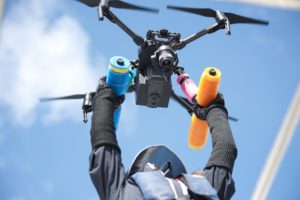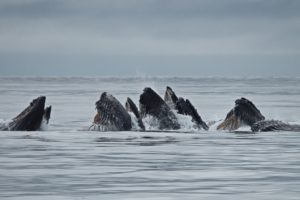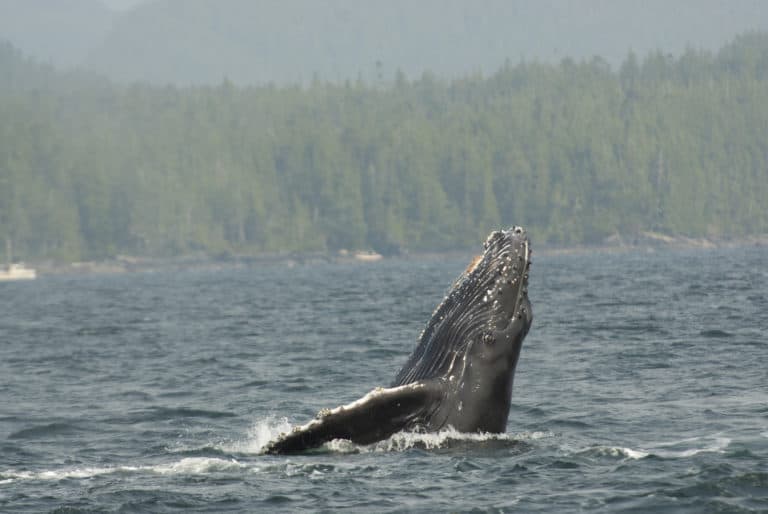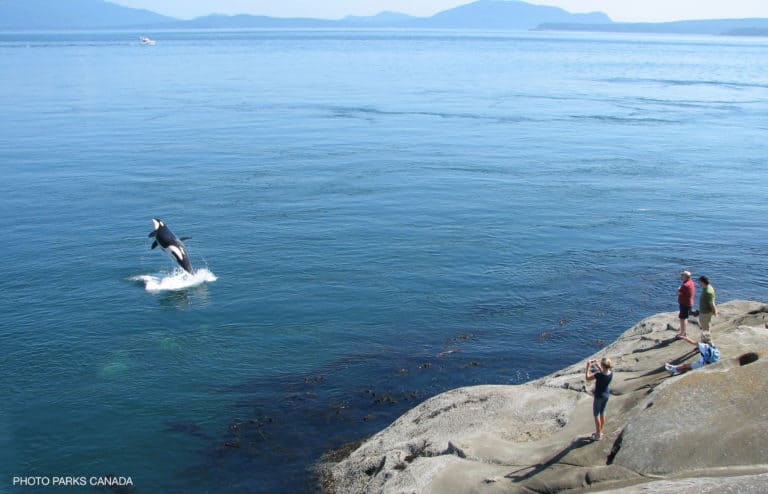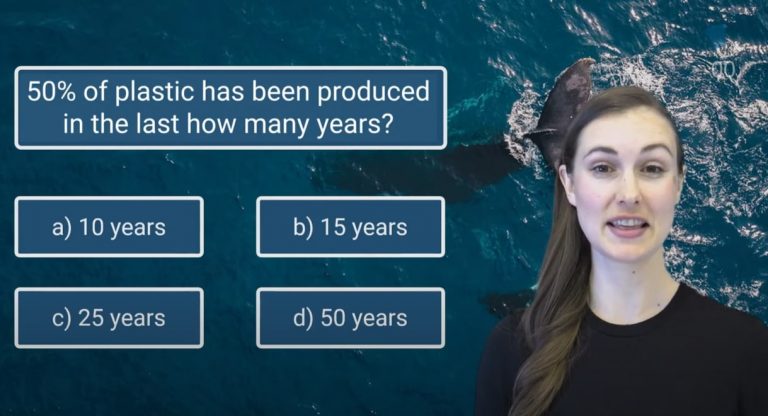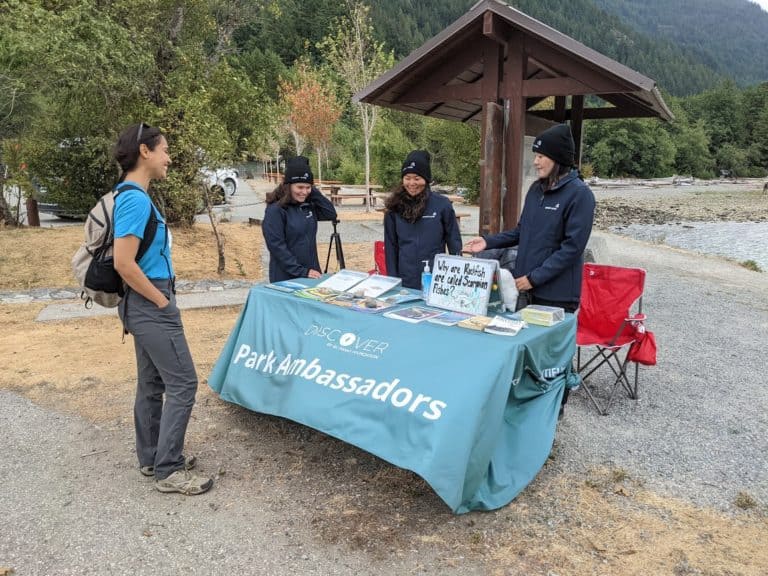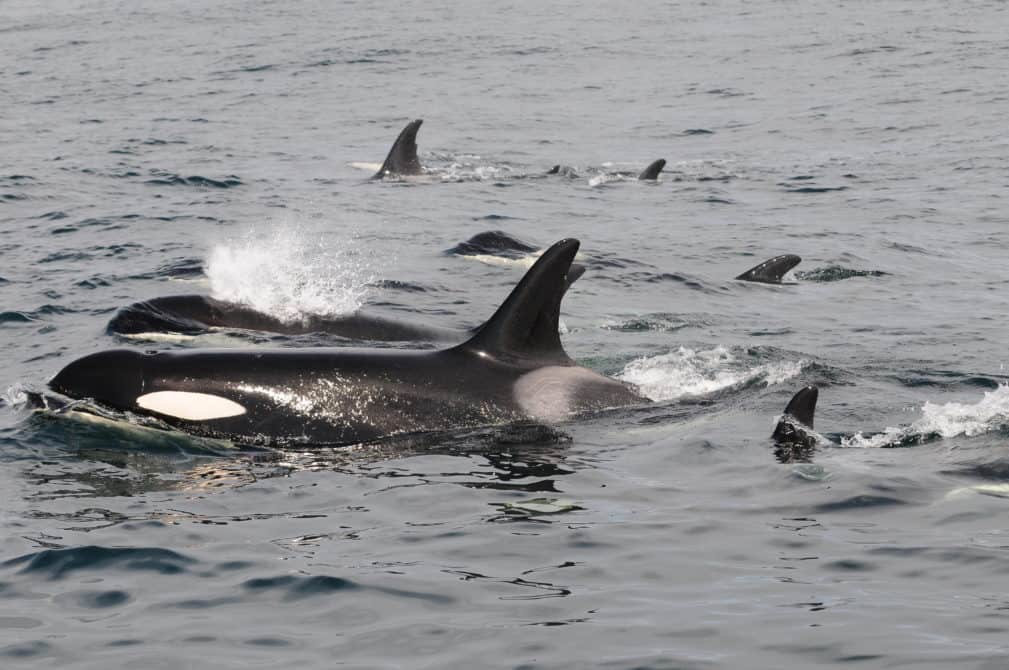
Adopt a Killer Whale!
Adopt online
Your symbolic adoption will support conservation efforts that safeguard these iconic ocean ambassadors.
Symbolically adopting a wild killer whale connects you with one of these amazing animals
Since 1992, the Wild Killer Whale Adoption Program has supported conservation-oriented research on wild killer whales. Research discoveries are shared through scientific publications, media, social media and public lectures, and through the provision of expert advice to governments, industry, and non-government organizations. Over the past 33 years, the Adoption Program has supported many ground-breaking research projects.
Your monthly gift makes a difference! Each monthly contribution will receive:
✓ Updates on Ocean Wise killer whale conservation efforts and opportunities to hear from marine mammal experts
✓ An annual tax receipt for each month your adoption is active
How compassionate adopters have protected whales over the past 33 years!

Establish the B.C. Cetacean Sightings Network, a citizen science program that collects reports of whales, dolphins, and porpoises in B.C.

Assist with the historic rehabilitation and release of Springer (A73) the killer whale

Create the Whale Report app to permit sightings to be received from cellular devices
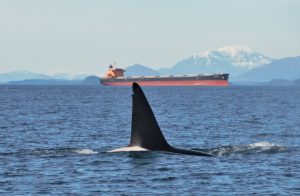
Milestone reached when over 50 professional marine organizations across British Columbia and Washington State registered with WRAS accounts

Begin winter study to address habitat-and prey-related knowledge gaps for whales in the Salish Sea

Milestone reached of over 75,000 WRAS alerts sent to vessels

Milestone reached of 200,000 whale, dolphin, and porpoise sightings in the Ocean Wise Sightings Network (formerly the BC Cetacean Sightings Network) database
Meet the whales

A charismatic young female southern killer whale born in 2003.

A female northern resident killer whale rescued in 2002 and now thriving in the wild.

Named after Eclipse Point, Eclipse is an adult female killer whale born in late 1997.

Stanley, a Bigg’s killer whale, is named after the famous Vancouver landmark Stanley Park.

One of the most famous wild killer whales, she was observed carrying her deceased newborn's body in 2018.

A young male killer whale born in 2018, Venture is a member of the A5 pod.
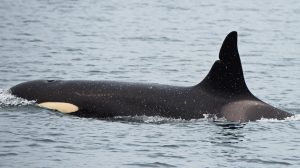
An easily recognizable northern resident with a dorsal fin notch obtained from an injury.
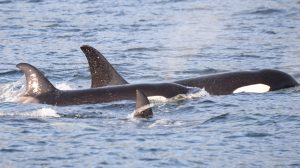
Named after Eliot Passage, this young female northern resident killer whale was born in 2014.
Meet the matrilines

This matriline consists of the famous northern resident Springer (A73) and her two calves Spirit (A104) and Storm (A116).

Led by Shachi (J19), they belong to J pod one of three southern resident pods.

Family members in this southern resident matriline include Tahlequah (J35) and others seen in the feature film, Free Willy.
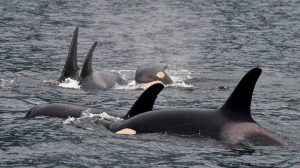
This growing matriline's matriarch, Sonora, lost two calves - but is now a grandmother of two.
